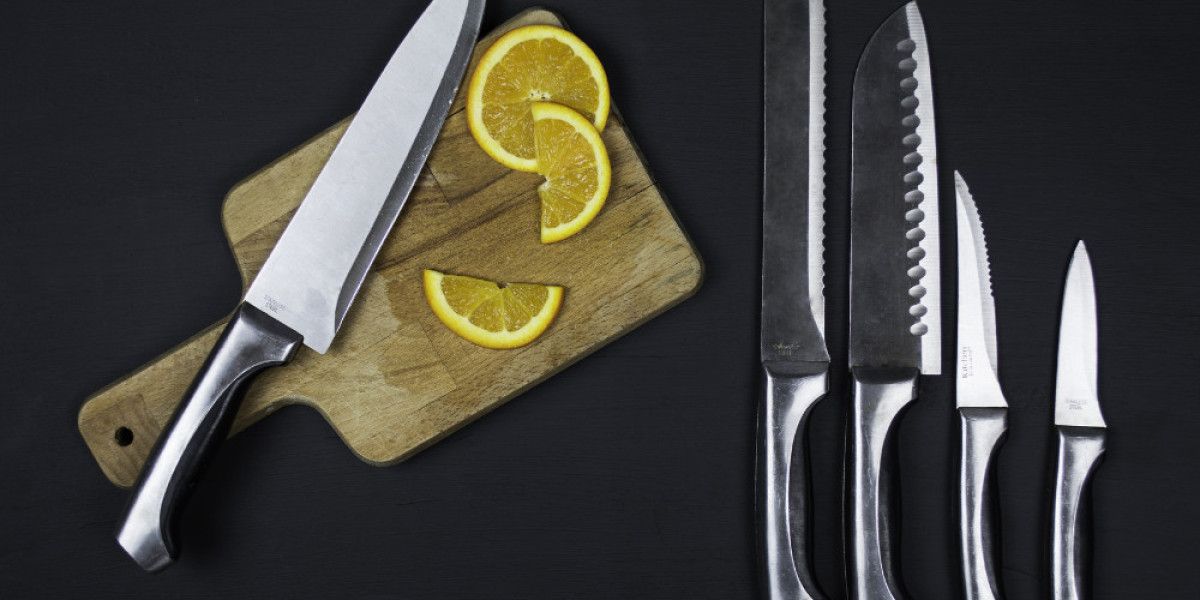Cutter knives, also known as utility knives or box cutters, are essential tools in various industries, from construction and packaging to arts and crafts. These versatile knives are designed for precision cutting, making them indispensable for both professionals and DIY enthusiasts. In this comprehensive guide, we’ll explore different types of cutter knives their uses, safety tips, and how to choose the best one for your needs.
Types of Cutter Knives
1. Retractable Utility Knives
Retractable utility knives feature a blade that can be extended or retracted for safety. They are commonly used for opening boxes, cutting cardboard, and general-purpose tasks.
Features:
Adjustable blade length
Ergonomic handle
Blade storage compartment
2. Fixed-Blade Utility Knives
Fixed-blade knives have a non-retractable blade, making them sturdier for heavy-duty cutting tasks like carpet installation or drywall cutting.
Features:
Strong, rigid blade
Ideal for tough materials
Requires a sheath for safety
3. Snap-Off Blade Knives
These knives have segmented blades that can be snapped off to reveal a fresh, sharp edge when the current one dulls.
Features:
Multiple sharp edges in one blade
Lightweight and compact
Great for precision work
4. Heavy-Duty Cutter Knives
Designed for industrial use, heavy-duty cutter knives have reinforced handles and thicker blades for cutting thick materials like rubber, leather, or insulation.
Features:
Durable construction
Non-slip grip
Extended blade life
5. Craft and Hobby Knives
These precision knives are used in model-making, scrapbooking, and other detailed work.
Features:
Ultra-sharp, fine blade
Comfortable grip for control
Ideal for intricate cuts
Common Uses of Cutter Knives
Cutter knives serve a wide range of purposes, including:
Packaging: Opening boxes, cutting tape
Construction: Cutting drywall, insulation, and flooring
Crafts: Precision cutting in paper, foam, and fabric
Automotive: Trimming upholstery and wires
Emergency Situations: Quick cutting in rescue operations
Safety Tips When Using Cutter Knives
While cutter knives are highly useful, improper handling can lead to injuries. Follow these safety guidelines:
Always Retract the Blade When Not in Use – Prevents accidental cuts.
Cut Away from Your Body – Reduces the risk of self-injury.
Use a Sharp Blade – Dull blades require more force and can slip.
Wear Cut-Resistant Gloves – Provides extra protection.
Store Properly – Keep knives in a sheath or locked position.
How to Choose the Right Cutter Knife
When selecting a cutter knife, consider the following factors:
Blade Type: Retractable, fixed, or snap-off?
Handle Comfort: Non-slip grips reduce hand fatigue.
Blade Material: High-carbon steel stays sharp longer.
Task Requirements: Heavy-duty vs. precision work.
Conclusion
Cutter knives are versatile tools that play a crucial role in various tasks, from simple box opening to complex crafting projects. By understanding the different types, uses, and safety precautions, you can choose the right knife for your needs and use it effectively. Always prioritize safety to prevent accidents and ensure smooth, efficient cutting every time.







